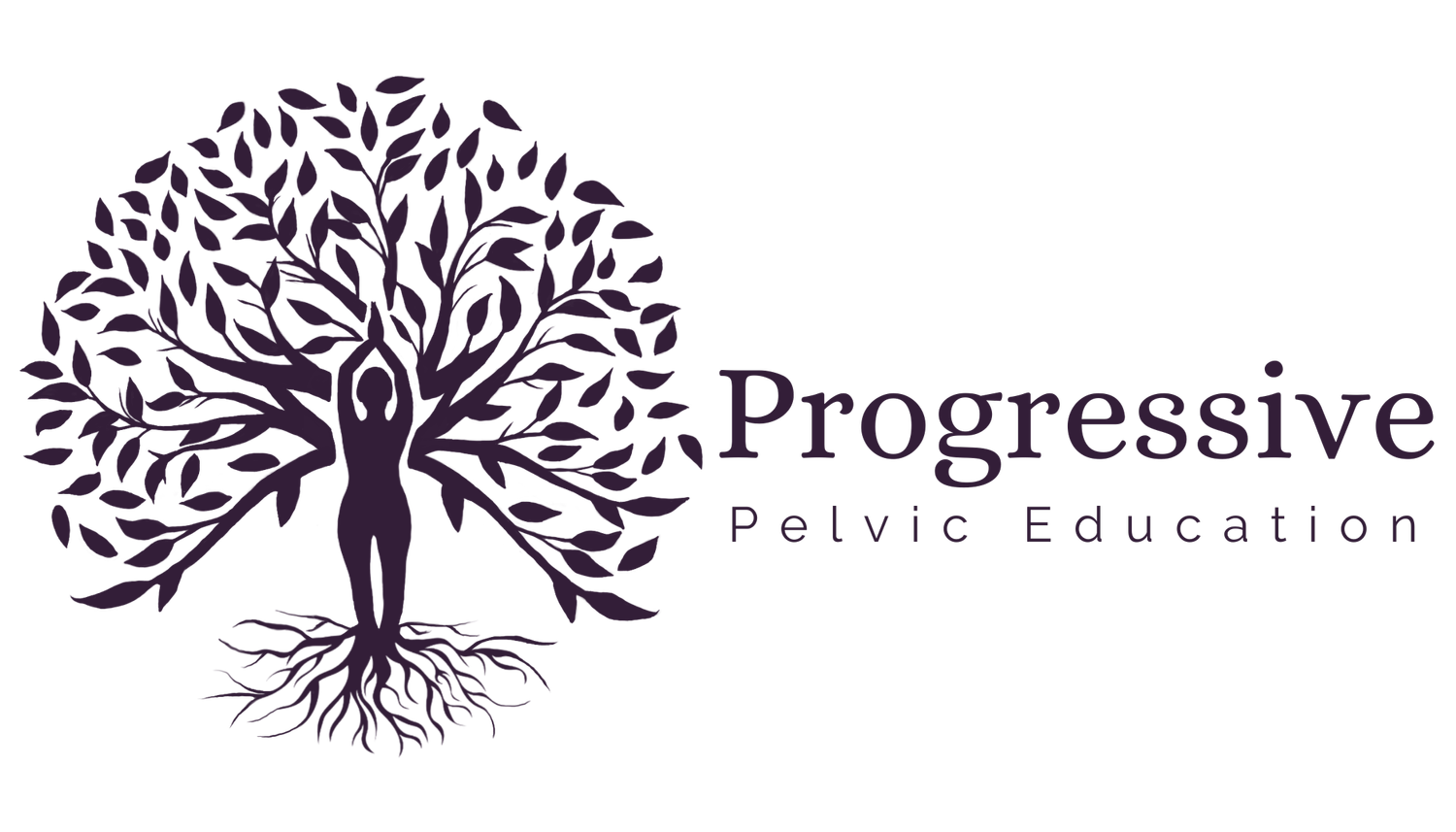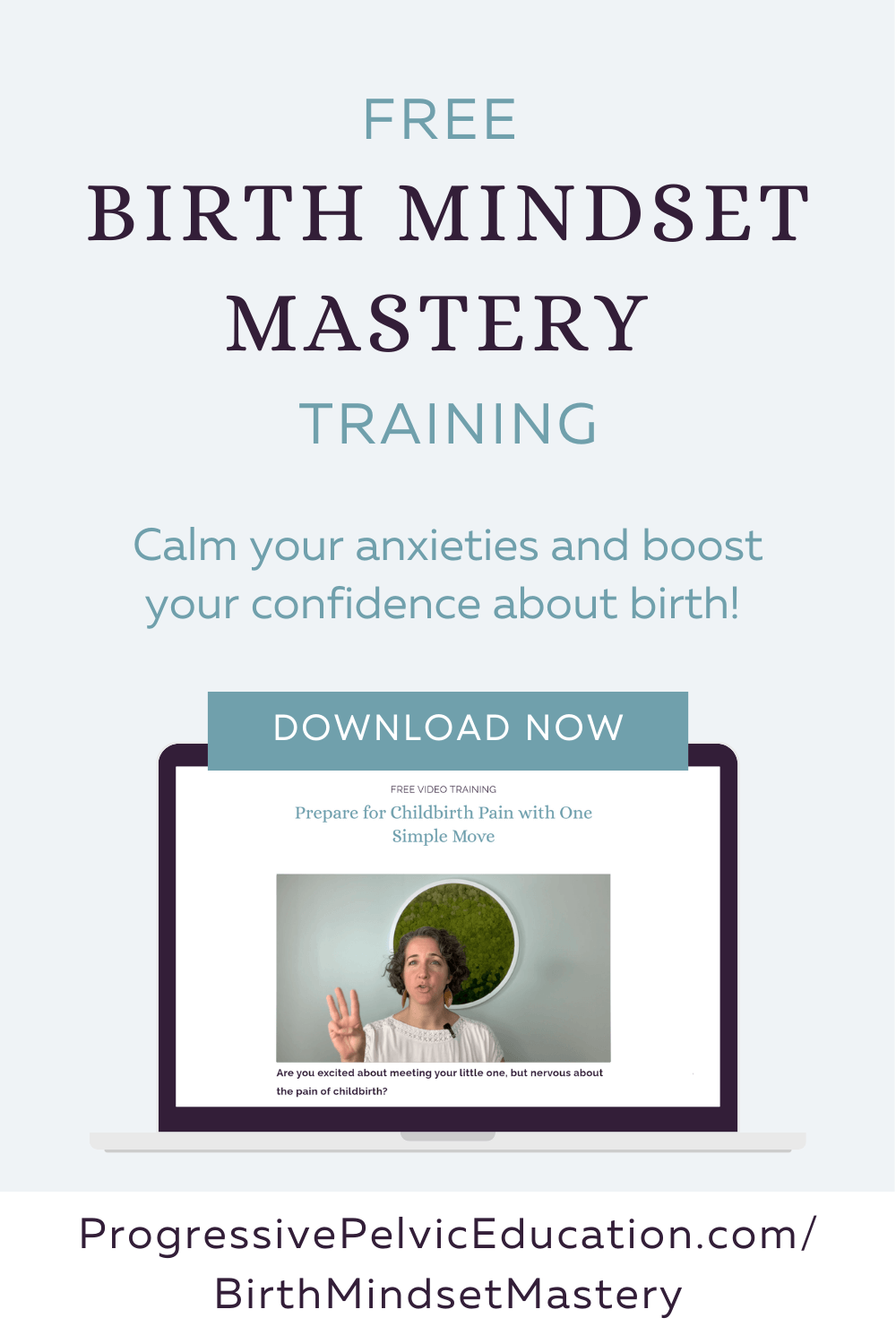How to Deal with Anxiety About Giving Birth
Do you have anxiety about giving birth? Many women don’t talk about it but, in my 17 years working with birthing people as a pelvic floor physical therapist and after having two children myself, I can say that most people are at least a little nervous heading into their birth. Read How to Deal with Anxiety About Giving Birth for practical tips and advice on what you can do to calm your nerves and go into labor with confidence!
When working with pregnant women, I see five main fears about childbirth show up:
Fear of the unknown
Fear of the lack of control
Fear of the changes to your body
Fear of potential future pelvic floor dysfunction (pain with sex, peeing yourself, prolapse, etc)
Fear of the pain of childbirth
You may have heard “horror” stories from your friends who have given birth that you just can’t get out of your mind. Or maybe you haven’t heard anything because you’re the first person in your group of friends or siblings to get pregnant, and not knowing what to expect worries you.
It doesn’t matter whether you’ve heard scary stories or no stories at all - we’ve all seen how birth is depicted on TV and in movies. The woman laboring on her back, sweaty and screaming while the bright hospital room around her is in absolute chaos, has been inundated in our psyche as the way things happen when it comes to bringing your baby into the world. It’s easy to see why you’d be anxious about that!
To say that how media shows childbirth isn’t helpful is an understatement, but what can you do about it?
Please know that there is hope!
Whether you feel anxious about just one thing or all five of the common fears I listed above, read on to see my top 3 tips on how to deal with anxiety about giving birth.
Talk with a trusted person
The first suggestion I have is to talk with someone you trust. That someone could be a partner, friend, doula, other like-minded mom, or healthcare provider. It’s important that you feel safe with that person and are able to openly talk with them about how you feel. It’s perfectly okay (really, encouraged) to not share vulnerable feelings with someone who has dismissed or minimized your feelings in the past when you’ve tried to open up to them. And yes, this could mean some close family members!
I also feel it’s important to have an idea that the person with whom you’re discussing your anxiety about giving birth shares your philosophies and values. For example, if you talk about your anxiety to give birth vaginally without medication with a friend who believes you should schedule a c-section, you’re obviously not going to get the support that you may want. As long as the person you’re confiding in is supportive of your goals it can help your body to just talk it out. Getting your fears out of your head through conversation can release some of that anxiety from your body.
Another option would be to find a pregnancy meet-up or support group for moms-to-be. (MESH moms is one option you can check out.) You’ll have the benefit of validation and community with other people who are in the same stage of life. You may also learn about other local resources or get ideas from what has worked for the other members.
And finally I would recommend seeing a mental health therapist who specializes in the perinatal period. These providers offer expert care to help you process your emotions and what you’re feeling, learn positive habits to manage your anxiety, and can also offer valuable resources to help you feel better. If access to a mental health provider is an issue, the National Maternal Mental Health Hotline is free and available 24/7 in English and Spanish: 1-833-TLC-MAMA. Whatever you’re feeling, you are not alone and there are people who want to help!
Focus inward and process what you’re feeling
My second suggestion is to focus inward and process what you’re feeling. This is a powerful tool that you can do anytime and it’s absolutely free! The two options I most often recommend to my patients and clients are meditation and journaling.
Daily meditation can come in many forms - moving meditation (when you’re walking or doing something intentionally like showering), seated or lying down, or guided with the use of apps (many have free versions). You can use your meditation time to clear your mind, calm your body, focus on what you want, or say affirmations - the options are endless. Whatever feels supportive to you in that moment is what I encourage you to do, rather than picking one particular style or way of meditating and only doing that. This helps to strengthen your ability to focus inward, feel what your body is telling you it needs, and then honor that and follow its guidance. For example, one day you may feel nervous and tired and a seated meditation may feel best for you, while another day you may feel a lot of anxious energy and a walk outside in nature would feel more supportive to you.
Journaling requires you to slow down. This can sometimes be hard in our fast-paced society, but it’s so beneficial especially at this stage in life! Nothing is going to slow you down like a newborn baby so it’s good to practice getting comfortable with stillness. You can use pen and paper to just write what you’re feeling and whatever pops into your head (‘stream-of-consciousness ‘ style) or you can write down the worries that come up for you. Writing it down literally helps your body get it out of your head and release some of that energy, which can be helpful in and of itself. After a while you may start to notice patterns and have an easier time seeing that your thoughts are just that - your thoughts - and not necessarily the truth. You can use your journaling to ask yourself questions and process how you’re feeling to work towards calming yourself. And no one ever has to read it!
Educate yourself and take action
My third suggestion is to educate yourself and take action. With all the work you’ve done above, you now may have a better idea what you’re specifically anxious about and can address that head-on.
If you’re worried about the unknown you can educate yourself about pregnancy, birth, and the postpartum period to alleviate some doubts and fears stemming from lack of information or experience. Taking a childbirth class with your partner can give you more details about what to expect in labor. Or you can hire a doula who can answer your questions and not only help you prepare but also be an enormous help to both you and your partner when you go into labor.
If you’re worried about the lack of control you might take the time to plan ahead. You can think of what you’ll need during labor and immediately after, and who can help you. But don’t just plan for the baby and what they’ll need - make sure to also think of yourself! Then you can let your support people (friends/family) know so they can have realistic expectations surrounding your birth and early days postpartum. Birth is so variable but by focusing on what you can control and releasing as much as possible about what you can’t control may help ease your mind and body heading into your birth.
If you’re worried about the changes to your body or future pelvic floor dysfunction you can support yourself with an online program like Progressive Pregnancy. You’ll get the exercises, stretches, self-massage, and mindset practices to use to prepare your mind, body, and pelvic floor for an empowered birth! It can help you have a smoother birth and postpartum healing, as well as help to protect your pelvic floor during your perinatal journey.
If you’re worried about the pain of childbirth, you might look for a class specifically about hypnosis or anxiety and pain management strategies (like Hypnobabies). You can also download our FREE Birth Mindset Mastery training to discover the one move that I recommend to all of my pregnant patients. It will help you reduce your fear and anxiety around the pain of labor, it will boost your pain tolerance and confidence, and help prepare your body and pelvic floor for birth. And you can start doing this move at any time in your pregnancy (or even before you get pregnant)!
Feeling anxious about giving birth is normal, please know that you’re not alone! We hope you’ll consider some of our tips for how to handle the fears you may be feeling around childbirth, so you can feel more confident and empowered when your baby arrives.



